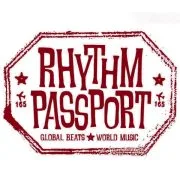Oh yes! We’re loving yet another great new release from Mali here at Rhythm Passport. Kamale n’goni player and singer Abou Diarra is a hardworking performer. Setting out from his musical home in Mali he travelled throughout West Africa and now resides in France, where he recorded his two most recent albums. This latest one, Koya (his fourth and second released by Mix & Métisse), is highly anticipated. It showcases the wonderful sounds of his kamale n’goni, a recently evolved kora-like instrument adapted from the hunter’s harp.
Abou Diarra is from the region of Sikasso, and his musical heritage is the Wassoulou tradition. Wandering around West Africa he became a student of the musical adventurer Vieux Kanté, considered to be the master of the kamale n’goni. After seven years of study (for three of which Diarra was only allowed to play in the house) and two years after the death of his charismatic teacher he finally felt the time was right to begin performing for himself. That was 2005, and since then his haunting voice and inventive melodic playing have been seeping into the consciousness of ‘world music’ audiences as yet another of Mali’s greats.
‘Né Nana’ is a stately and evocative opener. It features Vincent Bucher on harmonica, whose playing demonstrates his long association with West African music. On ‘Koya Blues’, the second track, Diarra’s own mother Koya – herself a well-known singer in Mali – sends shivers down the spine with her powerful performance, blended with flute and harmonica. The excellent ‘Djarabi’ featuring Malian kora maestro Toumani Diabaté comes next. Diarra’s soulful vocals sit delightfully amongst organic shaker patterns and soaring kora riffs.
Track four, ‘Tunga’, seems to be a club remix of ‘N’dogoni‘, the standout track from Diarra’s previous album Sabou, but here it is shorter with drum beats and keyboard. Without the lovely fula flute solo it’s the only disappointment on the album. ‘Djalaba’ begins with throaty flutes – and you want it to go on much longer with its expressive desert chant carried along by understated guitar riffs from Nicolas Repac, who produced the album.
Track six, Mogo Djigui, is an explosion of the extended techniques that earned Diarra’s teacher Vieux Kanté the title of “Jimi Hendrix of the kamale n’goni”. ‘Sougou Mandi’ is a cheerful dance track that rolls along with a hypnotic beat reminiscent of fellow Malian kamale ngoni player Issa Bagayogo. ‘Kamalen Kolon’ has a delightfully lilting Wassolou groove with its traditional scraper sound and a lovely live feel.
‘Abou Nicolas’ follows, and here we have the wonderful Vincent Bucher again with his harmonica on a rolling, bluesy track that showcases the wonderful sounds of the kamale n’goni. ‘Ma Chérie’ is the most commercial-sounding track on the album with up-tempo, sweeping vocals and a cheerful kamale n’goni solo woven into a more produced, sample-ridden club sound.
Finally ‘Labanko’ brings the collection to a close Ethiopian jazz-inflected piano and harmonica give this track a different vibe from the rest of the album. I’m not sure that Toumani’s kora really adds anything in this instance, but the vocals, kamale n’goni, flute, harmonica and percussion create a deep and beautiful sonic space. Although I prefer his 2013 album Sabou (produced by Eric Bono), and more thoughtful than his hugely enjoyable live album with his Donko Band, this album is a great listen, full of intriguing sounds. Abou Diarra’s beautiful voice is combined with plenty of funk and Wassoulou groove. Koya is a brilliant introduction the kamale n’goni in particular and Malian music in general.


